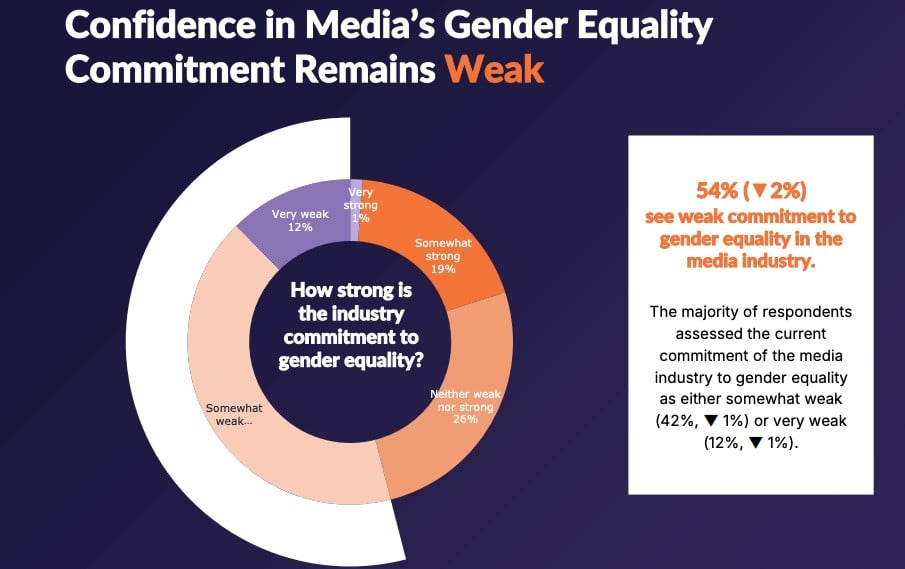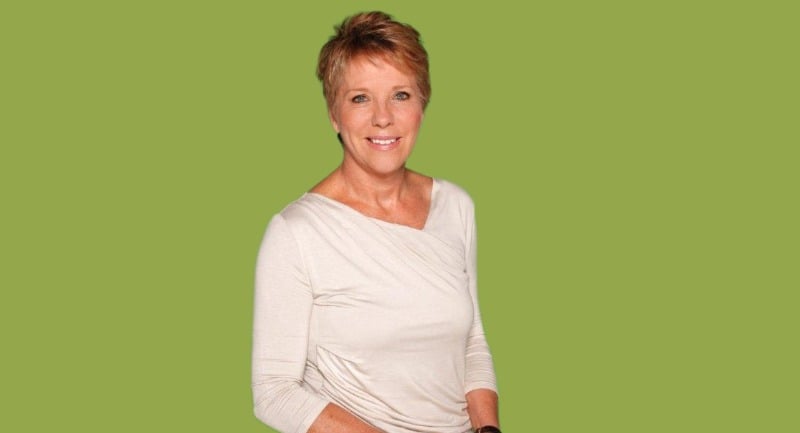There’s a startling disconnect in the industry. It’s a broad tent and that’s meant, tongue in cheek, in both senses of the term. Women are heavily represented across most of the media industry, but despite so many women occupying leadership opportunities in middle to upper management, running their own agencies and taking on other prominent roles, C-suite roles are still dominated by men.
Every year Women in Media publishes its The Women in Media Industry Insight Report. This year’s report is a disappointing read. In the past, one would have referred to the report as a ‘sobering read,’ but after years of highlighting the inequities in the industry, such little change at that upper executive level amplifies just how disappointing it all feels. As an industry, we need to do better.
For an industry where women drive so much of its value and momentum, that representation at the very top is still not happening. It’s little wonder why women feel dissatisfied.
“What happens is there’s a bottleneck of women in their mid-career. And because there are no actual mechanisms in most of these companies to actually promote and look for opportunities for them into leadership, they actually fall about the wayside,” Anita Jacoby told Mediaweek.
Jacoby is the Chair of Women in Media and is one of Australia’s most distinguished media executives. Her career began with journalism before moving on to senior production roles on shows including highly regarded shows such as 60 Minutes, Sunday, Witness with Jana Wendt, and Good Morning Australia. For almost a decade she ran indie studio Zapruder’s Other Films alongside Andrew Denton, before moving on to serve as Managing Director of ITV Studios. She has since held multiple board and advisory positions and is actively still on the hustle trying to get new shows into development.
Mediaweek spoke to Jacoby ahead of the Women in Media National Conference, which is being held on Friday 15 August in Sydney.
Jacoby has found tremendous success in her career, but has serious concerns for women also trying to make it in the industry.
“A third of women are looking at leaving the career that they’ve got. They don’t see a pathway to the future,” she said.
The findings of the Women in Media Industry Insight Report 2025
The figures don’t paint a positive view of the industry:
• Career dissatisfaction for women has climbed to 59%, a four-year high
• One in three women (37%) considering quitting, up 3% from 2024
• Pay (29%), lack of growth opportunities (26%) and disengagement (16%) are the top reasons for leaving
• Mid-career women (5 to 10 years’ experience) are the most disillusioned, with 64% rating gender equality efforts as weak
• Workplace culture changes linked to Respect@Work reforms remain limited: 78% say they have seen no change
It is anecdotal, but you will find a lot of these same concerns being raised by men throughout the industry. Career dissatisfaction, pay concerns, and a lack of growth opportunities are cited by professionals across the board irrespective of gender. But, the issues are intensified for women who also sense that their gender is holding their careers back.
That feeling is supported when you consider the numbers. “When we look at the media industry, 49% of them are women. But when you look at the CEO roles and managing director roles, just 30% are women. So in other words, 70% are men,” Jacoby said.
“There’s a disconnect and an inequality there. And certainly, if we want to address key issues like pay parity, why women are leaving the industry, why a third of women are so dissatisfied they want to leave the industry, we’ve got an uphill battle just looking at that without broadening it to men as well. Mind you, we want to engage men to actually address the issues,” she said.

What is the blockage? Is it out-dated thinking about who has the right stuff to run large-scale organisations? Are boards considering skills that are broader than just, for example, Sales performers who can point to revenue metrics?
Jacoby makes the call for broader thinking on what sort of traits should be considered for senior leadership roles: “Just on a commercial basis, women make 75% of commercial decisions in the household. I remember this through Gruen. Women are so influential in that way. I’m not taking away from a lot of CEOs being very good CEOs, but they don’t come up with the creative bent or the programming bent. They don’t understand the importance so much of content.
Women In Media are currently running a program that is about empowering women in media leadership, running it with a company called Nudge Leadership. They have had 55 young, middle-career women who are seeking opportunities, take the course. It helps them see if they are leaders or not, and whether they want to pursue leadership opportunities.
Jacoby lays down the reality of the situation with complete clarity: “There’s only 30% of women in MD and CEO roles. That’s unacceptable in 2025. What we [Women in Media] are all about is opening up in terms of gender equity for women because the media is so influential, media women are so influential, and it impacts on society generally.”
